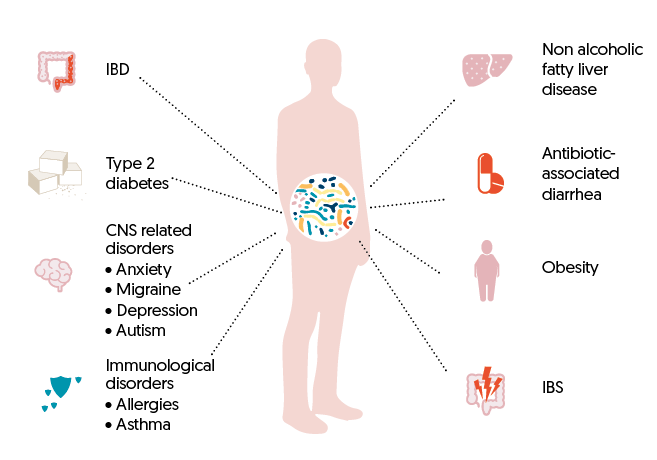Gut health

The human gastro-intestinal (GI) tract harbors 1013 to 1014 microorganisms, the so called intestinal microbiota and contains > 100 times as many genes as in the human genome. It has become clear that the gut microbiota plays a key role in human health and disease.
Crucial role gut microbiome
The gut microbiome plays a crucial role in human health as by:
- strengthening gut integrity or shaping the intestinal epithelium;
- protecting against pathogens;
- regulating host immunity;
- digesting food;
- regulating gut endocrine function and neurological signaling;
- modifying drug action and metabolism;
- eliminating toxins and producing numerous compounds that influence the host.
Chronic diseases
Unsurprisingly, therefore, disturbances of the composition and function of the intestinal microbiota have been associated with chronic diseases ranging from gastrointestinal inflammatory and metabolic conditions to neurological, cardiovascular, and respiratory illnesses. In addition, the association between reduced diversity and disease indicates that a species-rich intestinal ecosystem is more robust against environmental influences. Since functionally related microbes in an intact ecosystem can compensate for the function of other missing species. Consequently, high bacterial diversity seems to be a generally good indicator of a “healthy gut”.

Disturbances in the intestinal microbiotia
In a healthy situation the intestinal microbiota is well balanced. However, factors such as stress, medication use and diet, can disturb the intestinal microbiota thus influencing health an disease. Probiotics are able to prevent and restore these disturbances in the intestinal microbiota.
Winclove has developed several probiotic formulations for health indications related to intestinal microbial disturbances.